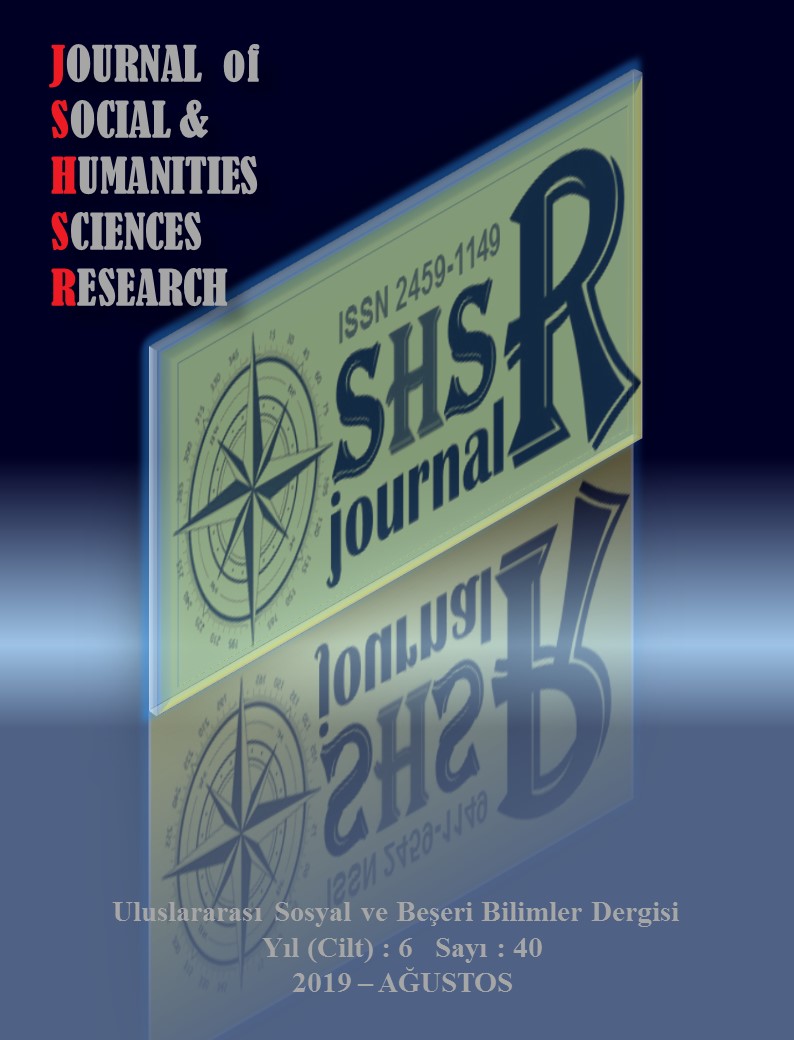INVESTIGATION OF THE RELATIONSHIP BETWEEN LIFELONG LEARNING COMPETENCIES AND SUBJECTIVE WELL-BEING OF LIFE LONG LEARNING CENTER (HBOM) TRAINEES (ISMEK EXAMPLE)
DOI:
https://doi.org/10.26450/jshsr.1301Keywords:
Lifelong Learning, Subjective Well-Being, İsmekAbstract
The main objective of this research is the investigation of the relationship between lifelong learning competencies and subjective well-being of lifelong learning center (İSMEK) trainees.
The relationship between lifelong learning competencies and subjective well-being of lifelong learning center (İSMEK) students was considered and correlational survey model was used in research. The study group of the research consists of a total of 413 trainees (307 female and 105 male) who attended ISMEK courses in Fatih district of Istanbul in 2018-2019 academic year. ‘Lifelong Learning Competence Scale’ and ‘Subjective Well-Being Scale’, which were developed by researchers, were used in research to investigate the relationship between ISMEK trainees' lifelong learning competence levels and subjective well-being.
According to the findings of the research, it was evaluated that the communication and digital competencies of the trainees were at the “intermediate” level and the other competencies and the general lifelong learning competencies were at the “high” level. In addition, the mean score of subjective well-being of trainees was 3.30 ± 0.38. The subjective well-being levels of the trainees were evaluated as “high” referring to the mentioned average value. It has been determined that lifelong learning competence levels of ISMEK trainees show a significant difference in subjective well-being according to gender, marital status and educational level. However, it was observed there was no significant difference in lifelong learning competencies by age, subjective well-being by gender, subjective well-being by marital status and age.
General lifelong learning competencies, communication in mother tongue, learning to learn, effective citizenship awareness, self-management, cultural and artistic awareness
The general lifelong learning competencies of ISMEK trainees included in the research are “high” in communication in mother tongue, learning to learn, effective citizenship awareness, self-management, cultural and artistic awareness, and digital competence and communication in foreign languages are medium level. Subjective well-being of ISMEK trainees included in the study is “high”. There is a positive and weak relationship between ISMEK trainees' general lifelong learning competence and subjective well-being levels. Within the framework of this importance, it is considered appropriate to increase the diversity of the activities within the body of ISMEK, which continues its activities with the understanding of lifelong learning, to appeal to different segments of the society. Lifelong learning activities should be designed to be accessible to all segments of society. Studies can be done to increase digital competencies and lifelong learning competencies in foreign language communication areas.
Downloads
Published
How to Cite
Issue
Section
License
Copyright (c) 2019 INTERNATIONAL JOURNAL OF SOCIAL HUMANITIES SCIENCES RESEARCH

This work is licensed under a Creative Commons Attribution 4.0 International License.


